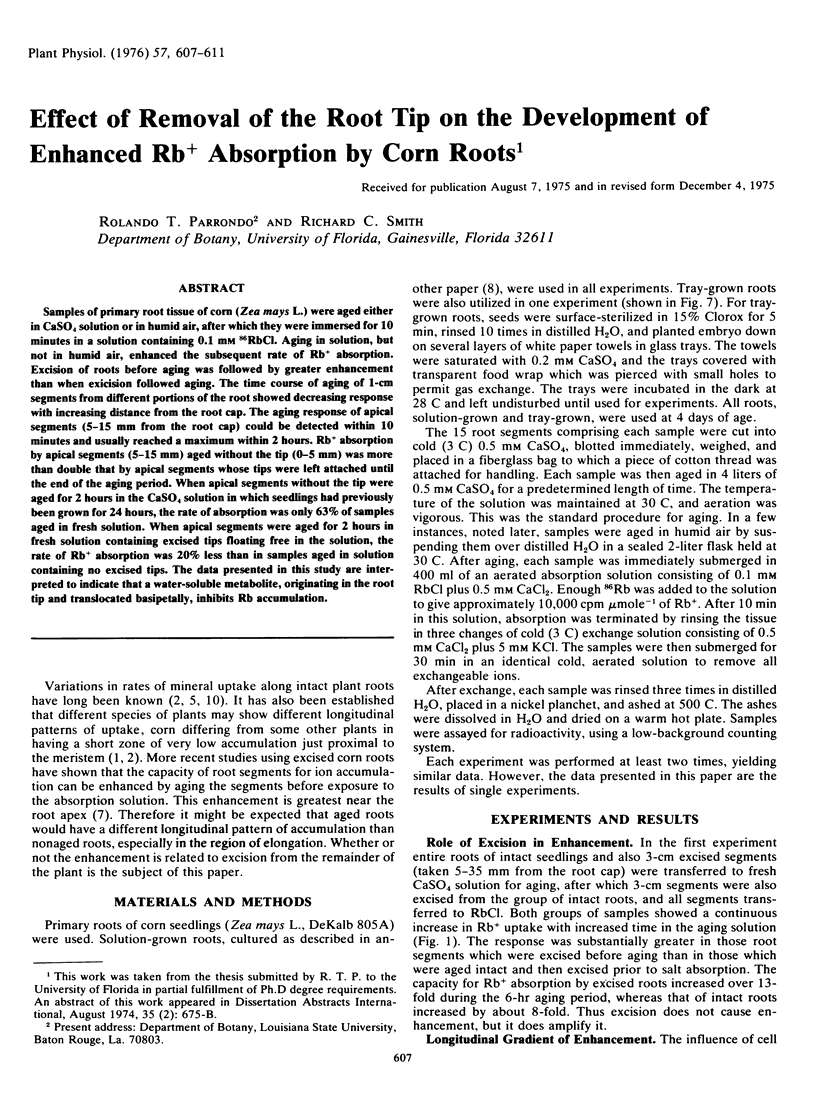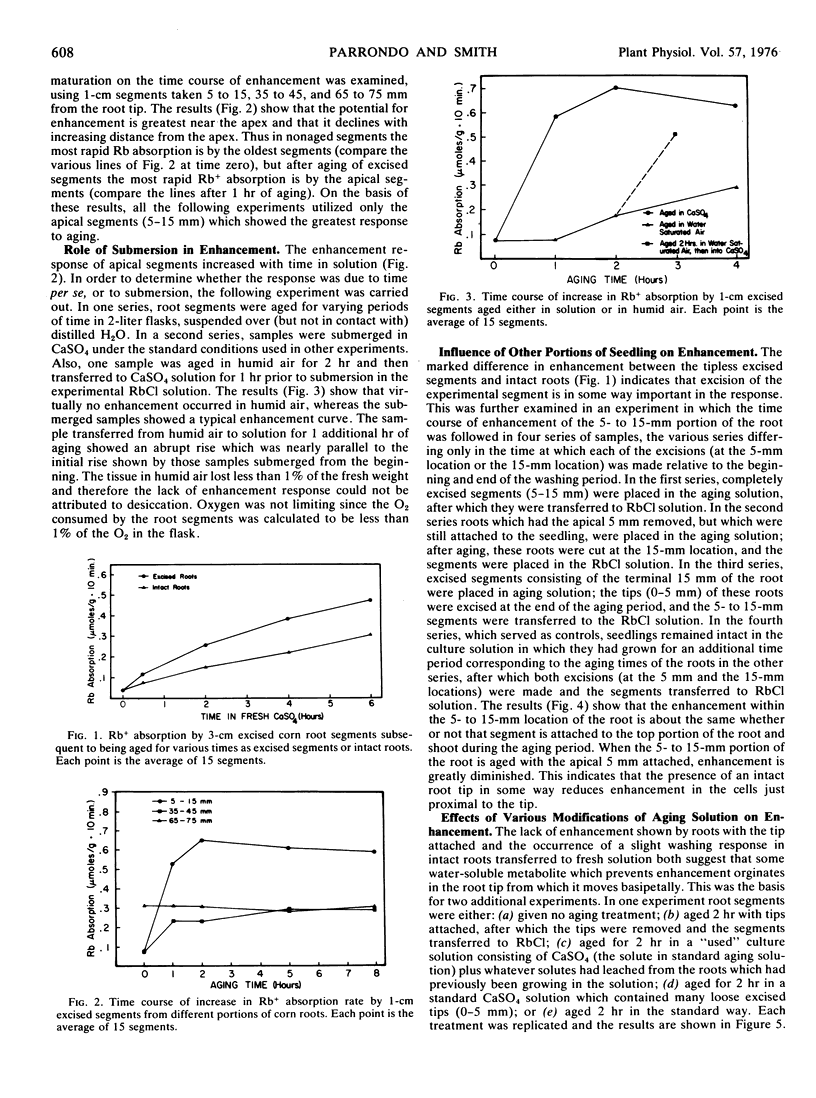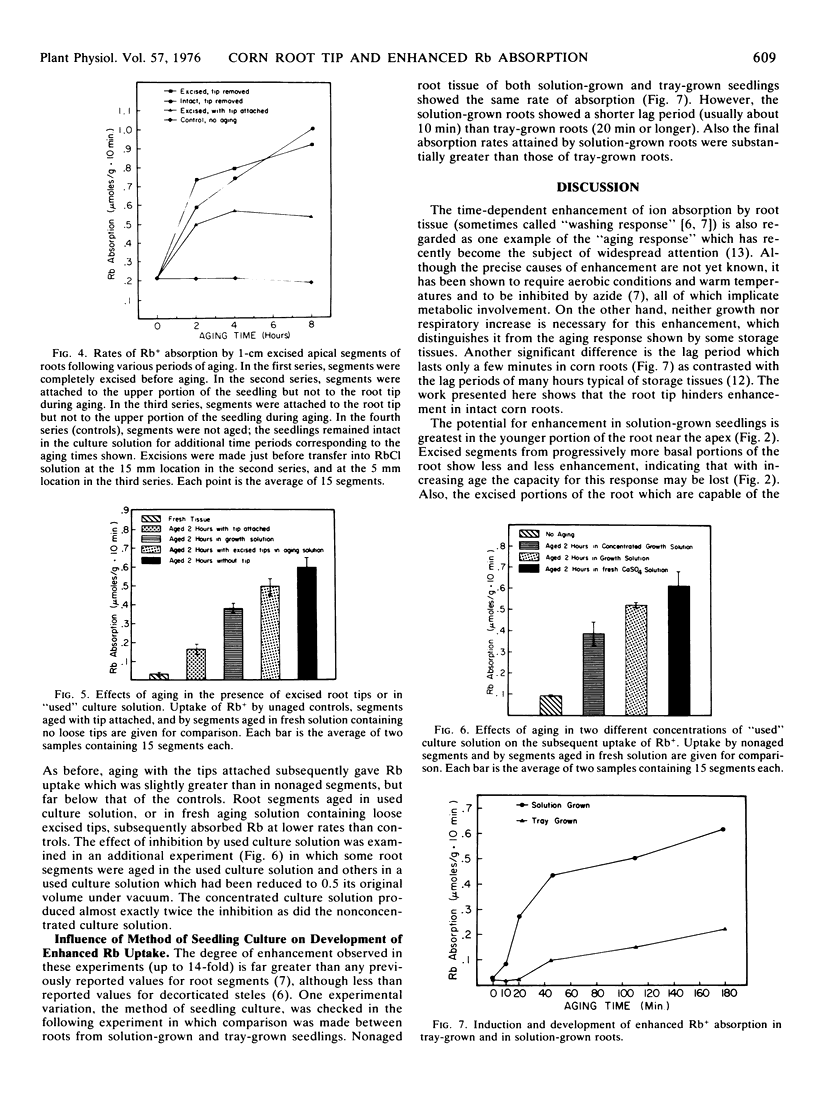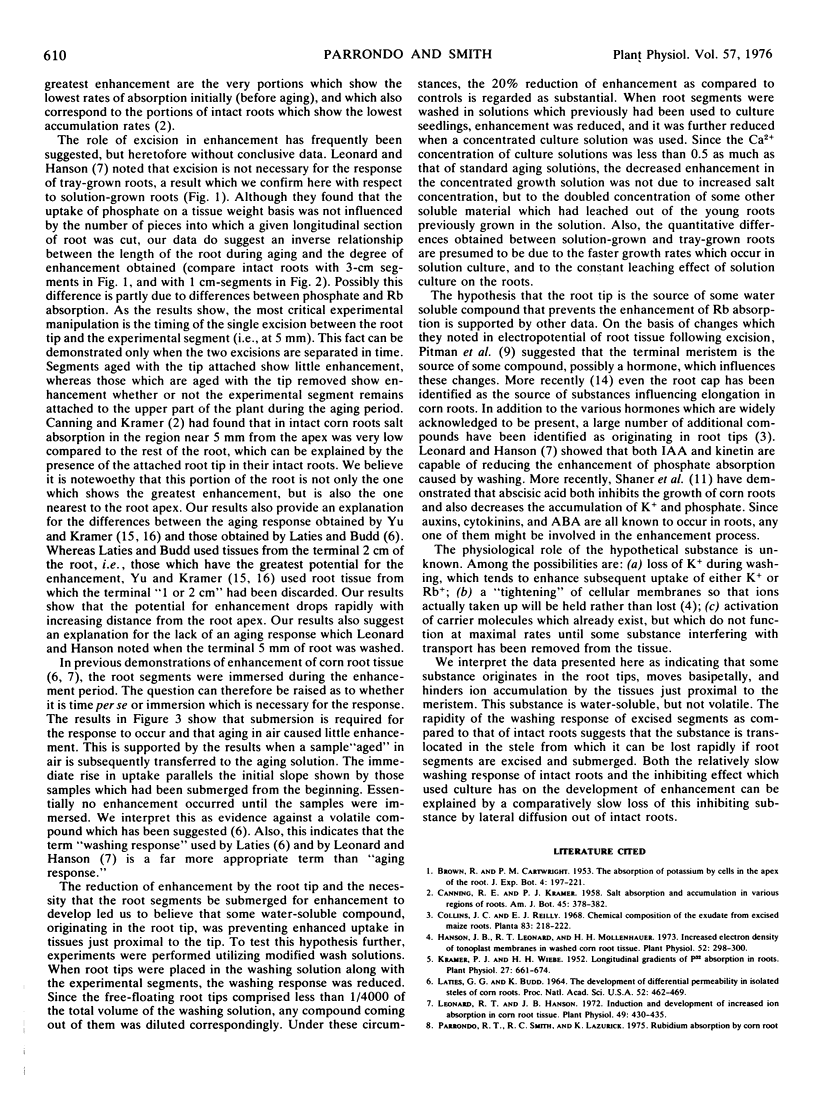Abstract
Samples of primary root tissue of corn (Zea mays L.) were aged either in CaSO4 solution or in humid air, after which they were immersed for 10 minutes in a solution containing 0.1 mm86RbCl. Aging in solution, but not in humid air, enhanced the subsequent rate of Rb+ absorption. Excision of roots before aging was followed by greater enhancement than when exicision followed aging. The time course of aging of 1-cm segments from different portions of the root showed decreasing response with increasing distance from the root cap. The aging response of apical segments (5-15 mm from the root cap) could be detected within 10 minutes and usually reached a maximum within 2 hours. Rb+ absorption by apical segments (5-15 mm) aged without the tip (0-5 mm) was more than double that by apical segments whose tips were left attached until the end of the aging period. When apical segments without the tip were aged for 2 hours in the CaSO4 solution in which seedlings had previously been grown for 24 hours, the rate of absorption was only 63% of samples aged in fresh solution. When apical segments were aged for 2 hours in fresh solution containing excised tips floating free in the solution, the rate of Rb+ absorption was 20% less than in samples aged in solution containing no excised tips. The data presented in this study are interpreted to indicate that a water-soluble metabolite, originating in the root tip and translocated basipetally, inhibits Rb accumulation.
Full text
PDF




Selected References
These references are in PubMed. This may not be the complete list of references from this article.
- Hanson J. B., Leonard R. T., Mollenháuer H. H. Increased electron density of tonoplast membranes in washed corn root tissue. Plant Physiol. 1973 Sep;52(3):298–300. doi: 10.1104/pp.52.3.298. [DOI] [PMC free article] [PubMed] [Google Scholar]
- Kramer P. J., Wiebe H. H. LONGITUDINAL GRADIENTS OF P ABSORPTION IN ROOTS. Plant Physiol. 1952 Oct;27(4):661–674. doi: 10.1104/pp.27.4.661. [DOI] [PMC free article] [PubMed] [Google Scholar]
- Laties G. G., Budd K. THE DEVELOPMENT OF DIFFERENTIAL PERMEABILITY IN ISOLATED STELES OF CORN ROOTS. Proc Natl Acad Sci U S A. 1964 Aug;52(2):462–469. doi: 10.1073/pnas.52.2.462. [DOI] [PMC free article] [PubMed] [Google Scholar]
- Leonard R. T., Hanson J. B. Induction and development of increased ion absorption in corn root tissue. Plant Physiol. 1972 Mar;49(3):430–435. doi: 10.1104/pp.49.3.430. [DOI] [PMC free article] [PubMed] [Google Scholar]
- Pitman M. G., Mertz S. M., Graves J. S., Pierce W. S., Higinbotham N. Electrical potential differences in cells of barley roots and their relation to ion uptake. Plant Physiol. 1971 Jan;47(1):76–80. doi: 10.1104/pp.47.1.76. [DOI] [PMC free article] [PubMed] [Google Scholar]
- Prevot P., Steward F. C. SALIENT FEATURES OF THE ROOT SYSTEM RELATIVE TO THE PROBLEM OF SALT ABSORPTION. Plant Physiol. 1936 Jul;11(3):509–534. doi: 10.1104/pp.11.3.509. [DOI] [PMC free article] [PubMed] [Google Scholar]
- Yu G. H., Kramer P. J. Radial salt transport in corn roots. Plant Physiol. 1967 Jul;42(7):985–990. doi: 10.1104/pp.42.7.985. [DOI] [PMC free article] [PubMed] [Google Scholar]
- Yu G. H., Kramer P. J. Radial transport of ions in roots. Plant Physiol. 1969 Aug;44(8):1095–1100. doi: 10.1104/pp.44.8.1095. [DOI] [PMC free article] [PubMed] [Google Scholar]


